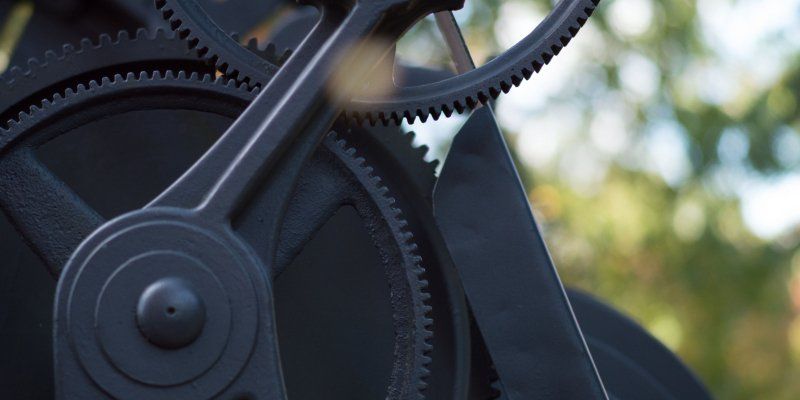News
Accelerating Diversity; Spurring Growth For Australian Industrials

Just over half of the Australian population (50.7 per cent) is female; just under half of the employee population1 is female (47 per cent).
Yet in Australia’s industrial sector women currently hold just 10 per cent of the line roles and 30 per cent of the functional roles in executive leadership.
Analysis of the financial impact of more gender diverse and inclusive teams has shown time and again that gender balanced business teams outperform gender-skewed teams in terms of sales and profits2.
A landmark study of more than 2,000 global companies conducted by Credit Suisse has also shown that firms with one or more women on the board have delivered higher average returns on equity, lower gearing, better average growth and higher price/book value multiples over the course of a six-year period3.
For many Australian industrials, improving their record on gender diversity is a clear business goal. There are frustrations that the pipeline of female employees is still slender – women are less well represented in STEM (science, technology, engineering and maths) tertiary education than men – but there are still opportunities to lift the gender diversity of Australian enterprise.
As the industrial practice lead with Derwent Executive I work with Boards and CEOs seeking to fill senior executive roles. I’m always keen to field as many strong women candidates as possible. To work out how it might be possible to accelerate diversity in the sector I approached a number of women who have risen through the ranks to the top of their profession to ask them to share their insights.
Adelle Howse for example is the ex CFO for Lattice Energy and Deputy Chairman Australian Mathematical Sciences Institute. She acknowledges that the issue isn’t confined to the industrial sector – though she says it does face additional challenges.
“Males have traditionally been very dominant in the industrial sector – especially engineering, construction, energy, resources. This is historic but also relates to availability of skills. Statistically about 14-16 per cent of engineering graduates are female and this hasn’t changed much in the last ten years.”
As a result, there simply isn’t a large representation of experienced women rising through the ranks in the sector, she says, and for some managers that can dissuade them from looking for women candidates that may come through a less traditional career route.
As Mariela Millington, CIO of Brightstar APAC notes; “Natural bias occurs in that usually you hire in the image you think the role needs to have. Almost always that image is a reflection of yourself,” she says. Since men are often the ones doing the hiring, that can lead to men being hired rather than women.
Andrea Pidcock, Executive General Manager of CSR Lightweight Systems, says that the hiring bias is compounded because male leaders’ role models have been overwhelmingly male in the past. “It leads
1 https://www.humanrights.gov.au/education/face-facts/face-facts-gender-equality-2018
2 http://gap.hks.harvard.edu/impact-gender-diversity-performance-business-teams-evidence-field-experiment
3 https://www.calstrs.com/sites/main/files/file-
attachments/csri_gender_diversity_and_corporate_performance.pdf
them to an innate belief that women are less capable, less ambitious, not as tough and not suited to the industrial environment that they themselves thrive in.”
The successful careers that each of these women has carved out gives lie to that belief.
Adelle Howse in any case believes the attitude is changing, especially as a new generation of industrials leaders “recognise the benefits of a diversity of experience and provide coaching and development for particular skills sets needed in the leadership roles in the industry sector,” she says.
That approach accelerates the march toward more diverse workplaces and sets up enterprise and individuals for greater success.
“Start by recruiting and promoting females into leadership positions – immediately. These females already exist. It shows other females that there is the potential to get to the leadership position,” says Howse.
While there is a way to go, Lee De Winton, CEO of Sydney Metro Airports (Bankstown & Camden) says that it’s important to recognise that although it is taking longer than expected to achieve equal opportunity, there has been progress.
“We have come from environments where as recently as 30 years ago in some work streams women had to leave if they were getting married or when pregnant. We are transforming decades of traditional reasonably quickly.
“Is it good enough yet? No. Now it’s time to consider how we accelerate this into a more equitable balance or representation.”
No one that I spoke to liked the idea of imposing quotas on the sector – but aspirational targets are seen as a way to accelerate diversity action.
Jayne Whitney, Chief Strategy Officer, John Holland, Director and Deputy Chairman, ISCA (Infrastructure Sustainability Council of Australia) neatly sums up the group’s feelings. “Targets are a useful tool when the benchmark is so low – but quotas have a negative connotation.”
Many senior women leaders in the sector believe that aspirational targets will prove critically important for industrials which want to really shift the dial on diversity.
Adelle Howse says that company boards should set targets and hold executive leaders to account as to why those targets cannot be met.
Given the mounting evidence of the financial impact that gender diverse teams deliver – it is increasingly hard to argue against the move toward greater equality.
But while targets are useful, ultimately it will be cultures that win out says Shona Fitzgerald, Managing Director of CRC Industries. “Operate an organisation based on good values as this attracts the right people and then diversity isn’t something that needs to be focused on, because it’s a given from the integrity of the people that you attract,” she says.
The advice and insight from these women leaders who are already at the top of their game is invaluable for forward looking, growth focused organisations.
The rewards of gender diversity are clear. Yes, the pipeline of female candidates in the industrial sector may be slender, but the opportunity to identify talented women across the enterprise and offer them the training and mentorship that would benefit them and the business is one that should never be overlooked during the recruitment and promotion process.
Finally, thanks to all women who engaged with me and whose views I’ll share more broadly in this series, in particular thanks to;
• Adelle Howse – Principal, Structuring for Performance; Deputy Chairman Australian Mathematical Sciences Institute
• Andrea Pidcock - Executive General Manager, CSR Lightweight Systems
• Gabrielle Martinovich – Director, Definitude Consulting
• Jayne Whitney - Chief Strategy Officer, John Holland; Director & Deputy Chairman, ISCA (The Infrastructure Sustainability Council of Australia)
• Jennifer Purdie - Chief Executive Officer, Adani Australia Renewables
• Lee de Winton – CEO, Sydney Metro Airports (Bankstown & Camden)
• Mariela Millington - Chief Information Officer, Brightstar APAC
• Shona Fitzgerald - Managing Director, CRC Industries
I’m hoping to add more insights over the course of this series – so please do feel free to share your insights with me at HHall@derwentexecutive.com.au
Helen Hall is a Partner at Derwent Executive
About Derwent
Derwent (www.derwentsearch) is an established leader in Executive Search, Board Appointments and Talent Advisory. We specialise in senior executive appointments in private and listed mid-market organisations and the public sector.
With over twenty years of expertise across a range of industries and a strong regional presence, we are ideally positioned to provide high calibre talent and effective strategic guidance to help our clients build strong, dynamic and sustainable organisations.
Helen Hall, Partner - Sydney
Helen is the Partner lead in the Industrial Practice at Derwent where she has a wide breadth of exposure to executive role types from Boards, CEOs and the C-Suite. She is a passionate advocate for driving diversity, in all its complexity, into the Australian industrial sector and a strong proponent of harnessing the power of digital leadership through the sector. Prior to joining Derwent Helen spent more than 20 years in businesses working across Australia, New Zealand and Asia Pacific.
She holds a Master of Marketing from Macquarie Graduate School of Management and a Bachelor of Business from Charles Sturt University.
For more information please contact:
Helen Hall + 61 2 90913283
Katelyn Ranpaia + 61 2 90913206
Share this article
Recent Articles



Sydney
Level 21
123 Pitt Street
Sydney NSW 2000
Australia
sydney@derwentsearch.com.au
Melbourne
Level 28
360 Collins Street
Melbourne VIC 3000
Australia
melbourne@derwentsearch.com.au
Perth
Level 29
1 Spring Street
Perth WA 6000
Australia
perth@derwentsearch.com.au
Brisbane
Level 19
10 Eagle Street Brisbane
Brisbane QLD 4000
Australia
brisbane@derwentsearch.com.au
Sydney
Level 21
123 Pitt Street
Sydney NSW 2000
Australia
+61 2 9223 1855
sydney@derwentsearch.com.au
sydney@derwentsearch.com.au
Melbourne
Level 11
350 Collins Street
Melbourne VIC 3000
Australia
+61 3 9691 1333
melbourne@derwentsearch.com.au
melbourne@derwentsearch.com.au
Perth
Level 15
240 St Georges Terrace
Perth WA 6000
Australia
+61 8 9282 5250
perth@derwentsearch.com.au
perth@derwentsearch.com.au
Canberra
The Realm
18 National Circuit
Barton ACT 2600
Australia
canberra@derwentsearch.com.au
Brisbane
Level 19
10 Eagle Street Brisbane
Brisbane QLD 4000
Australia
+61 2 9223 1855
brisbane@derwentsearch.com.au
canberra@derwentsearch.com.au
Canberra
The Realm
18 National Circuit
Barton ACT 2600
Australia
+61 2 9223 1855
canberra@derwentsearch.com.au
Derwent


